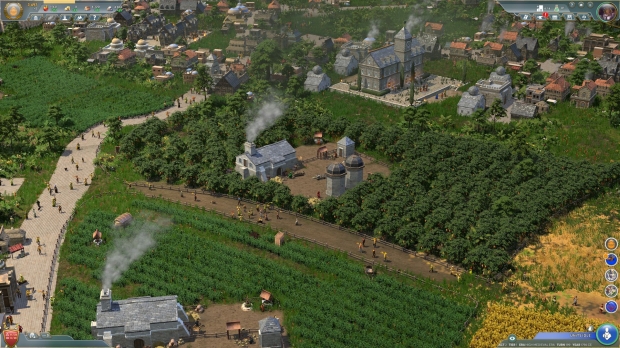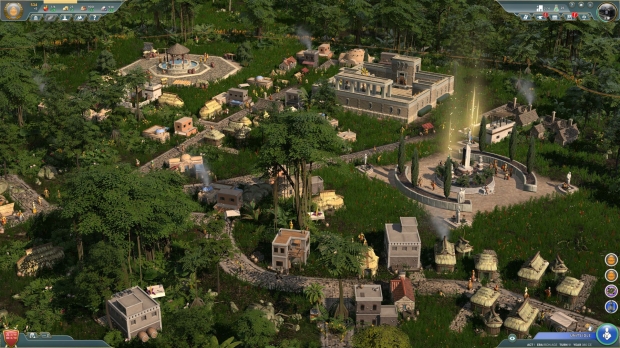Ara: History Untold is a grand strategy game in the vein of Civilization which does things rather differently, particularly when it comes to valuing the player's time.

Grand strategy reimagined, or that's the hope (Image Credit: Oxide Games / Microsoft)
Developed by Oxide Games and published by Microsoft, Ara: History Untold is set to release in the fall of 2024 on PC (and PC Game Pass), and it comes with some innovative ideas for the genre.
Firstly, there's that promise of not wasting your time, and Michelle Menard, Design Director at Oxide Games, explains how that works in a lengthy chat with Xbox Wire (hat tip to PC Gamer).
With a sprawling Civ-style affair, one game could last for 15 or 20 hours, say, and by the end of that marathon, you might realize that you lost not long after the beginning. In other words, much of that game was pretty much redundant.
Ara: History Untold splits a game into three acts, and only players who have met the conditions (accumulating prestige through tech advances, completing quests, and so on) advance to the next act. That means if you've fallen badly behind in act one, when the curtain comes down on it, that's your lot - you'll be out of the game (any players below that threshold will).
Menard explains: "It sucks so hard to play a 20-hour game to realize that, by the end of it, you lost at hour two. So, it's a kindness to players. Let them build, lose early, and then let them restart anyway. So: fail often, fail early, learn from that, and then play further because you know you need to learn from your failure to play these games."
Splitting a game into these acts also benefits the multiplayer side of the equation. As the acts provide a natural breaking point where you can leave off, then pick up again later, that can make it easier to play a lengthy game with friends over the course of a few separate evenings, rather than in one big marathon session.
Adapt or die
Another point of innovation that Menard enthuses about is differentiating Ara: History Untold from typical strategy affairs by making it less about figuring out an optimal strategy to use over and over.
In other words, the game design and tech advance mechanics - using a system of cards - is such that you can't just figure out the optimal series of upgrades to make and stick to that as a winning formula. Instead, you have to adapt your approach in every game.
Menard notes: "[When prototyping] we wanted to do something that would force you to reevaluate, force you to think every single time you play and really look at what's ahead - cards felt like a natural fit for that."
At its heart, Ara: History Untold still looks very Civilization-like, but it is trying to depart from the traditional mechanics in meaningful ways, and another of those spins it puts on is a system of simultaneous turn resolution (as opposed to linear turns: one happens, then another).
If the name Oxide Games seems familiar, you'll have heard of the developer due to Ashes of the Singularity - the RTS game which is the source of a good many benchmark leaks.
The developer has a handful of ex-staff from Firaxis, developer of Civilization (and XCOM), and that's probably no great surprise. We're certainly looking forward to seeing how Ara: History Untold is realized compared to these ambitions when it emerges later this year.


